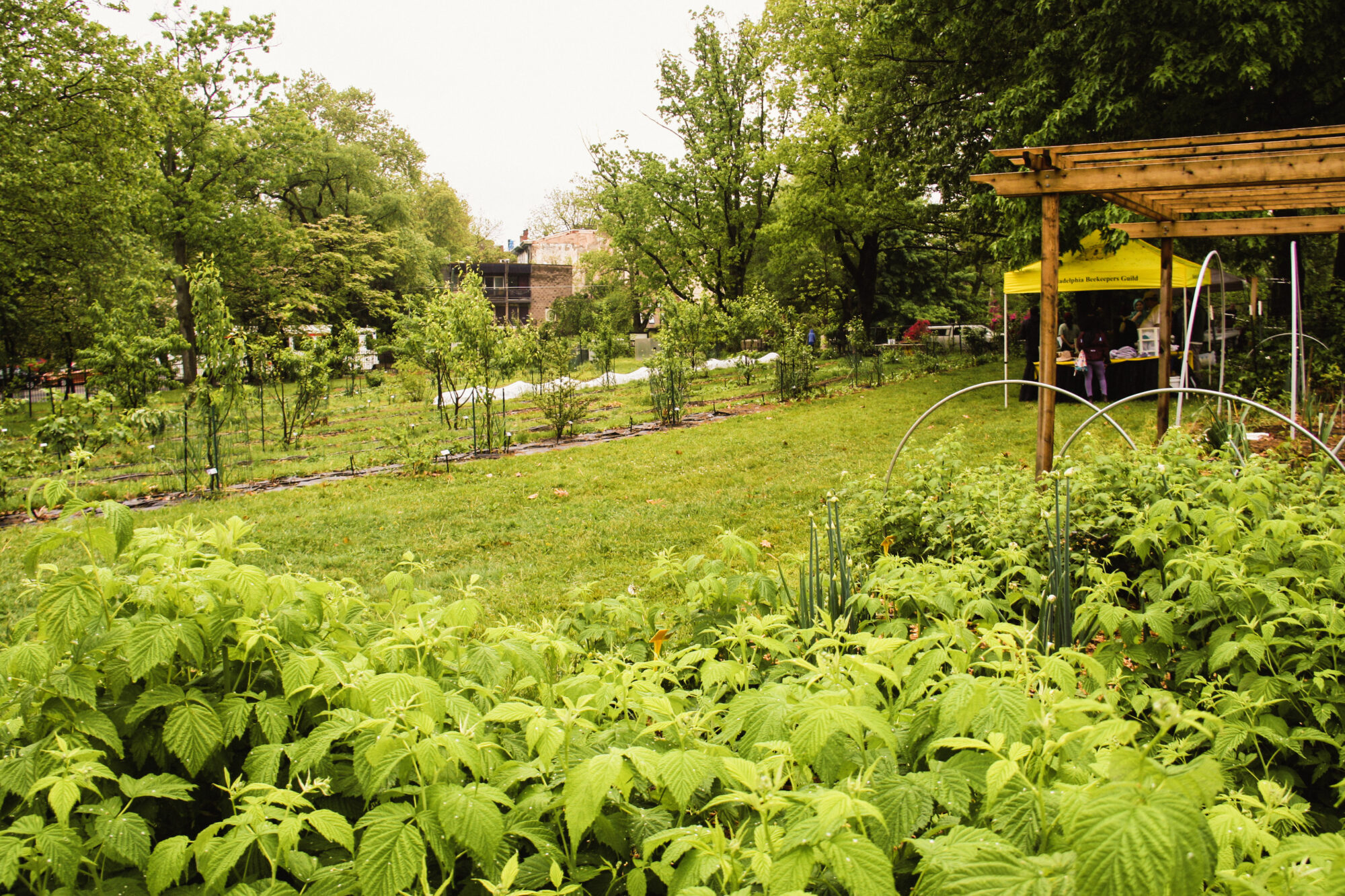
With the POP Learning Orchard in its third growing season, 2022 was a year of learning to adapt to change and challenges as the space continued to grow and expand. With another year of adjusting to pandemic life, the orchard continued to be a sanctuary for reconnecting with the land through volunteer opportunities, workshops, plant sales, sacred gatherings, open orchard hours and youth education programs. This season highlighted that the success of the POP Learning Orchard isn’t solely reflected in its ability to provide fresh fruits, veggies and herbs, but also in its ability to be a space for learning, experimenting and expansion.
The Learning Orchard’s annual production continued with a third season of alley cropping, a system of planting agricultural or horticultural crops in between tree rows, and saw the introduction of new crops such as bok choy, cilantro, parsley, thyme, oregano, arugula, amaranth, garlic and the introduction of the perennial herb, french sorrel! In total this season’s harvest included:
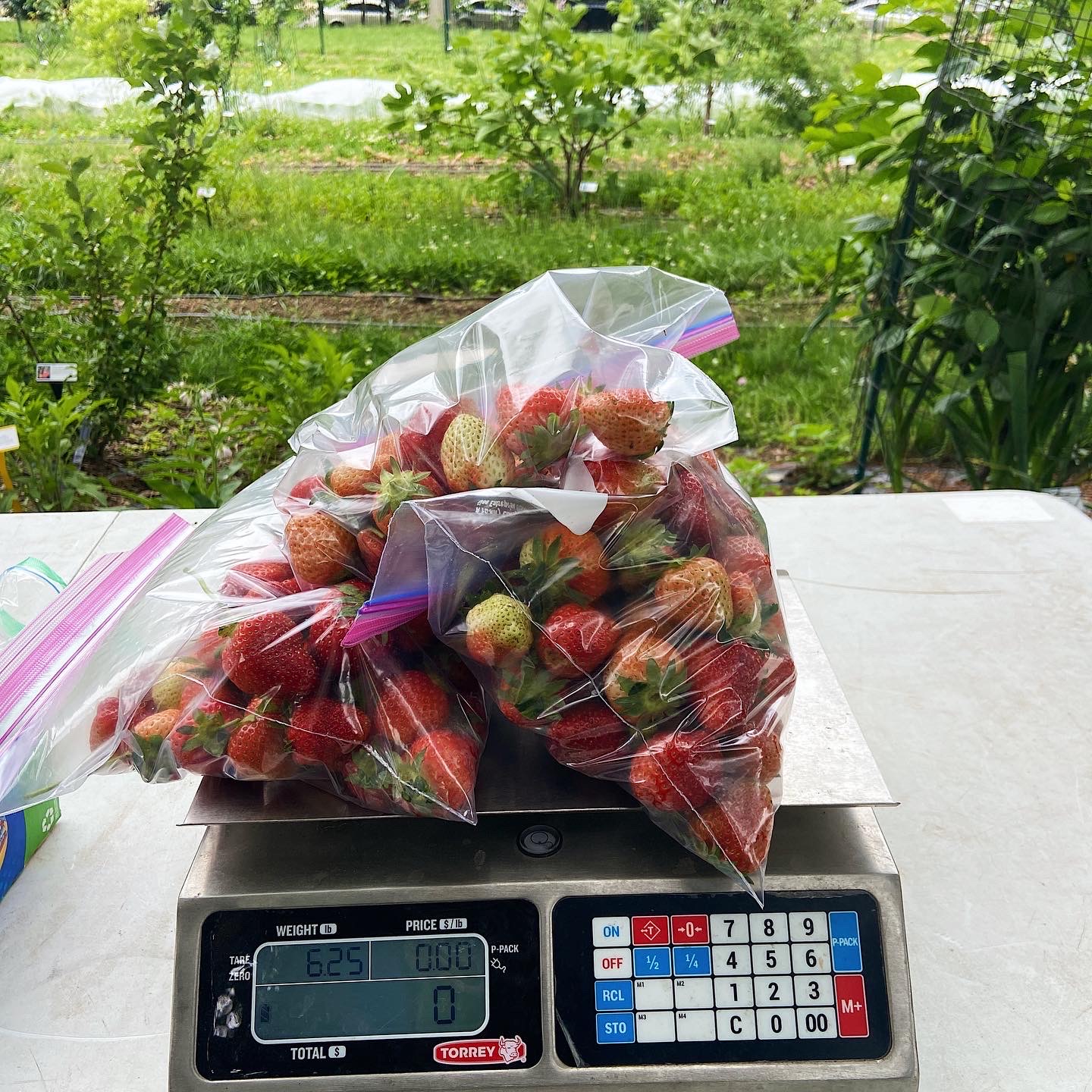
226 pounds of summer squash
219 pounds of collards
206 pounds of okra
205 pounds of swiss chard
117 bunches of parsley
75 bunches of cilantro
57 pounds of cherry tomatoes
45 bunches of basil
36 pounds of black eyed peas
33 pounds of strawberries
31 pounds of butternut squash
30 pounds of garlic
24 pounds of amaranth
21 pounds of sorrel
21 pounds of green peppers
18 pounds of eggplants
15 pounds of spinach
12 pounds of bok choy
10 pounds of goumi berries
9 bunches of oregano
8 pounds of gita long beans
8 pounds of arugula
7 pounds of landreth stringless green beans
7 pounds of scallions
7 pounds of georgia candy roaster squash
7 bunches of thyme
6 pounds of figs
5 pounds of fish peppers
5 pounds of peas
4 pounds of garlic scapes
4 pounds of red and yellow raspberries
and more!
1,316 pounds of produce were donated to emergency food services POP has previously partnered with. including Food Not Bombs West Philly and The People’s Fridge on 52nd St as well as the introduction of a new partnership with Get Fresh Daily, an organization that promotes wellness education through culturally relevant programs that focus on the Black community in Philadelphia. The organization not only makes accessing plant-rich eating more accessible and affordable, but provides healthy living education through events, workshops and cooking demos.
POP also continued its partnership with True Love Seeds by growing Clemson Spineless Okra for a third season! The crop grew favorably despite the heat and pests issues that the orchard experienced this year.
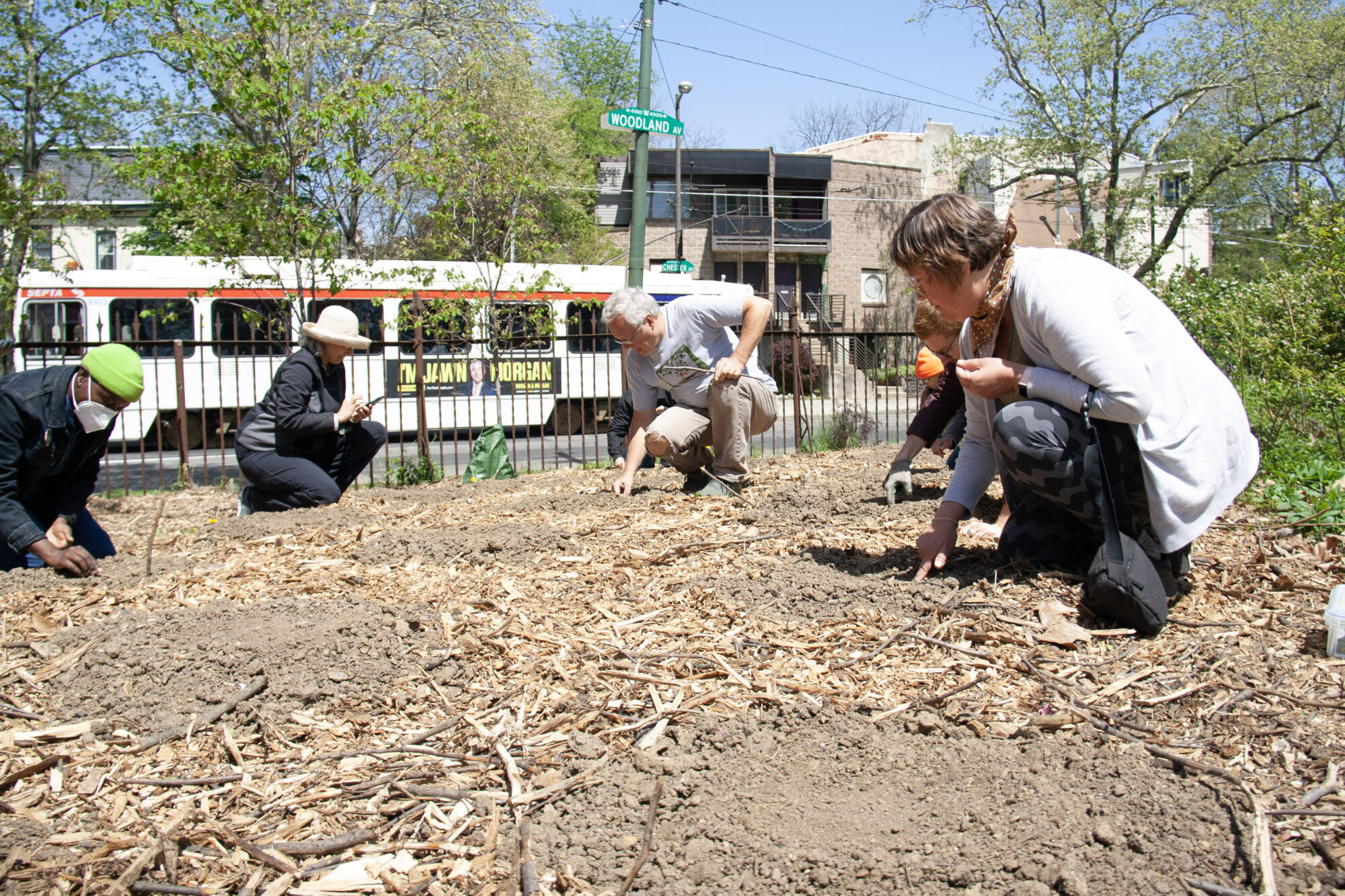
The Three Sisters was added as a new annual production project. The Three Sisters is a technique of intercropping practiced widely in Mesoamerica for centuries before becoming widespread in North America, most notably among the Haudenosaunee and Cherokee nations but also locally with the Lenni Lenape. The interplanting consists of corn, beans and squash; corn is planted first in a series of mounds that grow to provide a trellis for the beans to climb on, beans absorb nitrogen from air and convert it into nitrates that fertilize the soil for the squash and corn. Squash is subsequently planted in between the corn and beans to shade the roots and hold moisture in the soil. By using this powerful growing method, these three plants succeed better together than when planted separately, resulting in a generous yield and nutritious diet. The Three Sisters project was a collaboration that came together with the help of POP board member Craig Johnson who has successfully planted the Three Sisters before. Craig created a planting plan for the Learning Orchard and POP staff and volunteers prepared the mounds for the planting. After weeks of prep, the first sister, Corn, was planted during a beautiful ceremony led by Trinity Norwood, a Nanticoke Lenni-Lenape citizen, advocate, educator and adviser. The ceremony served as an intentional time to honor those who have stewarded the land long before us and the sacred knowledge we keep and practice to this day.
Unfortunately, due to several external challenges such as pests, drought and unfavorable soil conditions the yield for the corn and Georgia Candy Roaster Squash weren’t as productive as anticipated and while the Gita Long Beans picked up in production during the summer, they were only able to produce around 8 pounds of yield. Regardless, it was a generative learning experience that provided the team with a wealth of knowledge that will be applied for the Three Sisters planting next season!
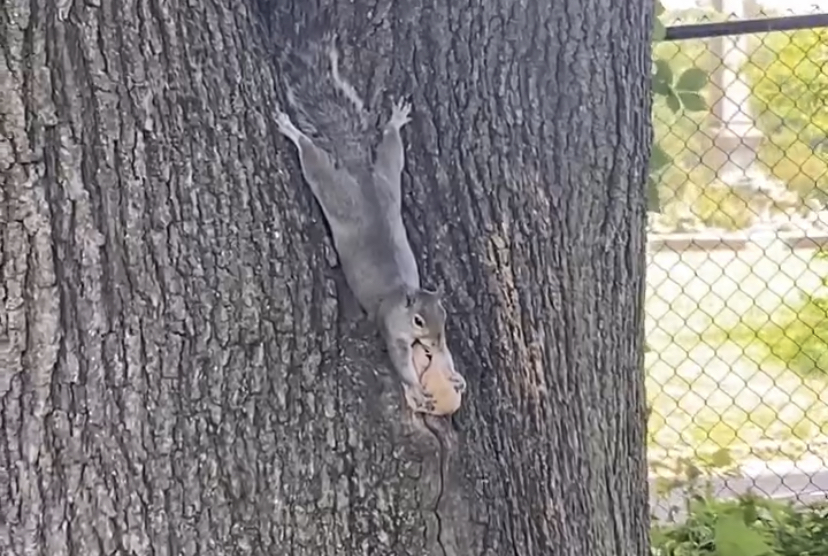
It’s important to note that the Learning Orchard had several challenges that impacted crop production. Groundhogs and squirrels feasted on many of the emerging crops, especially the winter squash and watermelons that largely contributed to previous years’ higher yields; collards that typically experienced more success; and highly anticipated Asian pears and persimmons that were almost-ripe one day and gone the next. Birds were the main culprits when it came to the orchard’s blueberries, blackberries and most surprisingly- chokeberries! According to reports, Philadelphia had one of its hottest summers, with July 2022 being the second-hottest on record and several weeks throughout the summer with little to no rain. Pests looking for additional water sources during periods of drought, turned to many of the crops grown in the orchard both on the trees and within the annual production rows. With this in mind, pest management and climate change will be even more important to consider when designing future crop plans.
Whether it was to volunteer, attend a workshop or explore what was growing, the Learning Orchard continued to open its gates to communities throughout the city. Over 230 volunteers came out to the orchard for weekly workdays and along with the biannual plant sales and 15th year POP anniversary orchard celebration, open orchard hours during The Woodlands Nature Night events allowed for an additional 660 guests to engage in tours and exploration.

Over 30 students from POP partner sites participated in youth education visits at the orchard led by Education Director Corrie Spellman-Lopez and Orchard Assistant Erika D’Andrea. During visits, students experienced an orchard tour and engaged in an immersive scavenger hunt followed by a group reflection about what they learned.
More workshops led by community educators were held at the Learning Orchard on a variety of topics including:
> mushroom inoculation
> figs for Philly
> biochar and compost tea
> pickled green plums
> yebra-stuffed grape leaves
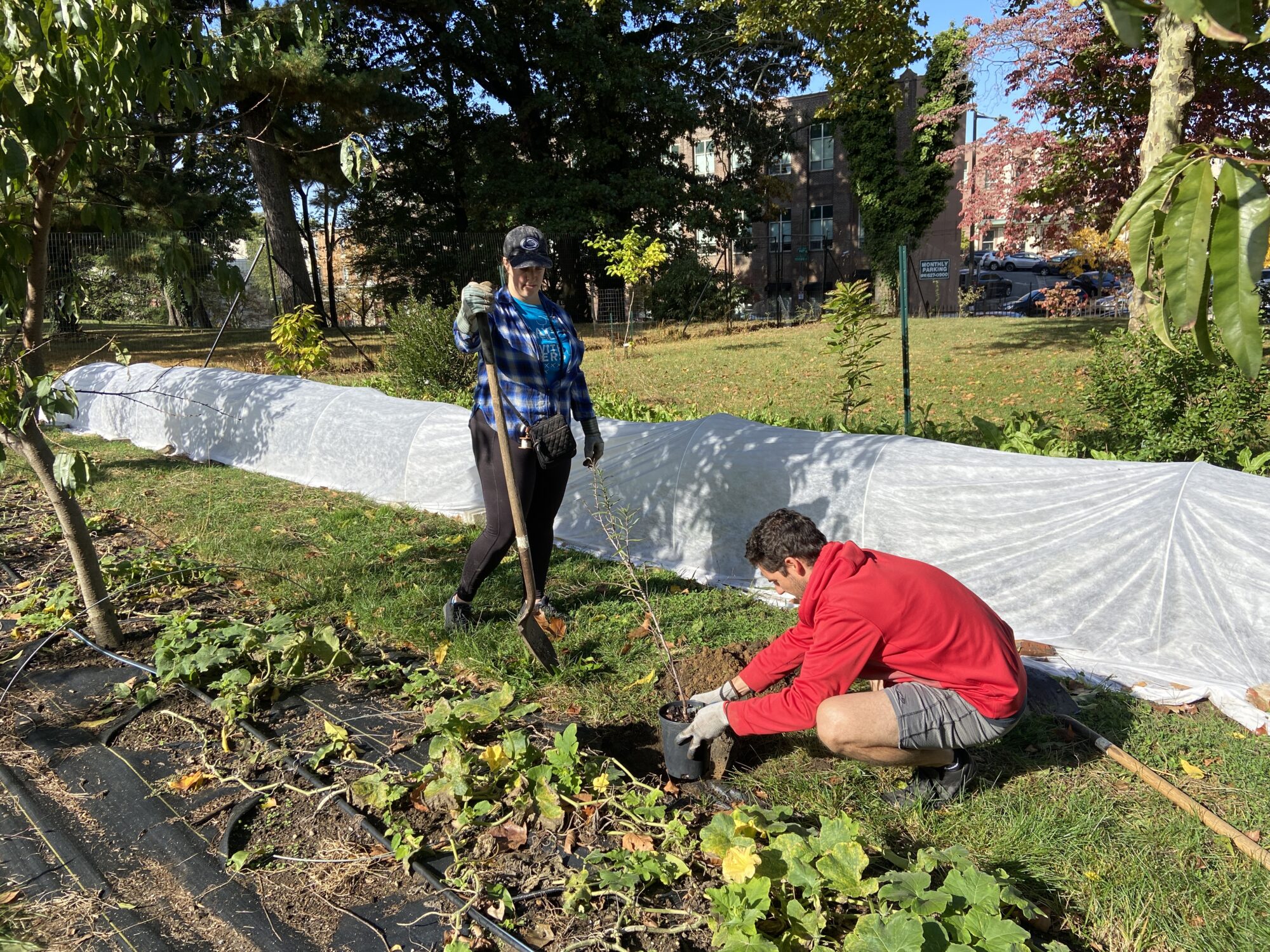
The POP team continued to expand plantings at the Learning Orchard to demonstrate the wide array of perennial crops that can be grown in Philadelphia. New plantings in 2022 included Cornelian cherries, beach plums, american hazels, maypops, black currant and red jostaberry, french sorrel, ramps, yucca, prickly pear, and an ever expanding pollinator and herb garden. Crop planning for next year has just begun, but we are excited to experiment with new perennial vegetables, further refine management practices for both perennial and annual crops, and finally build our long-delayed high tunnels for propagation and production. Most of all, we look forward to sharing what we learn with our community partners, volunteers, and the people of Philadelphia!
This blog post was prepared by POP Orchard Manager Sharon Appiah in collaboration with Co-Executive Director Phil Forsyth.
SUPPORT US! If you found this entry useful, informative, or inspiring, please consider a donation of any size to help POP in planting and supporting community orchards in Philadelphia: phillyorchards.org/donate.